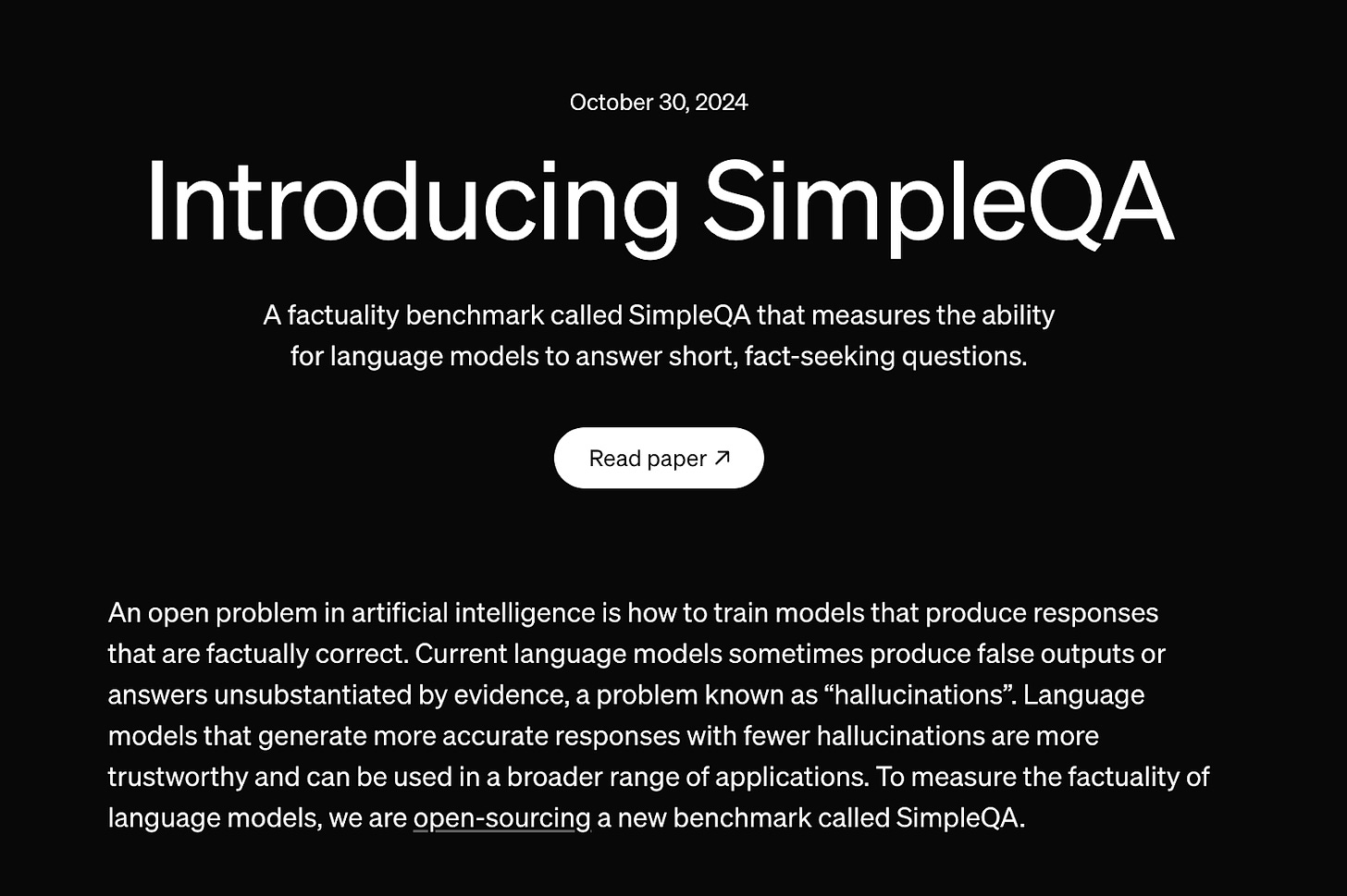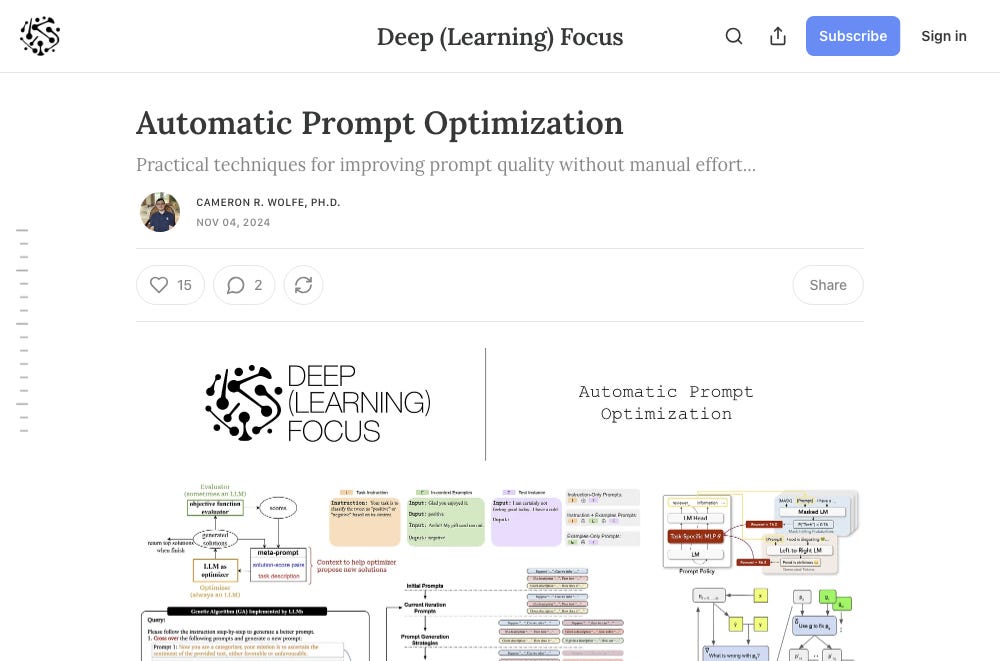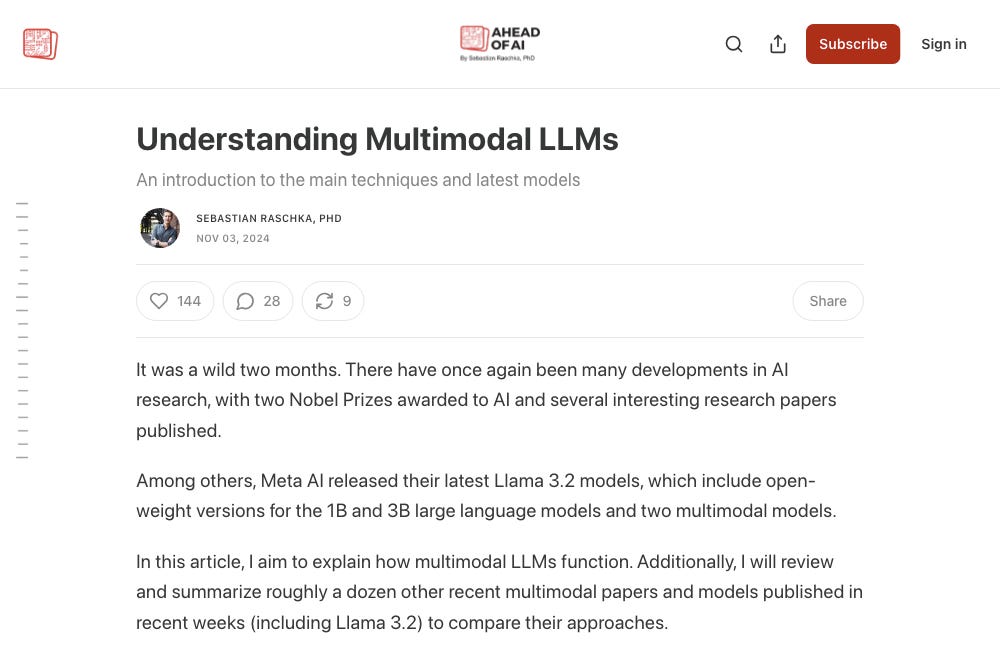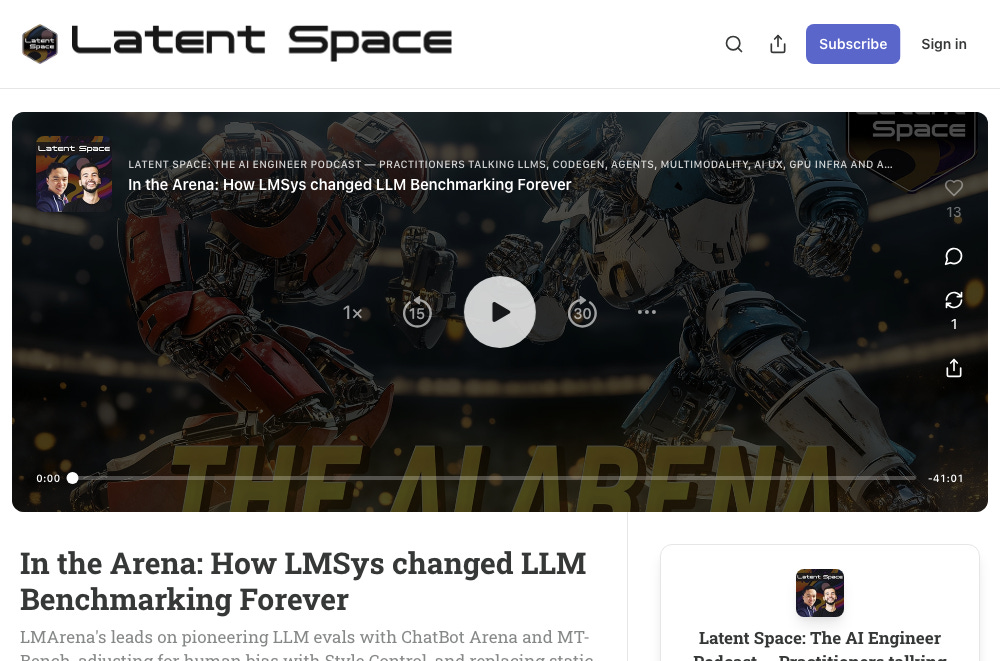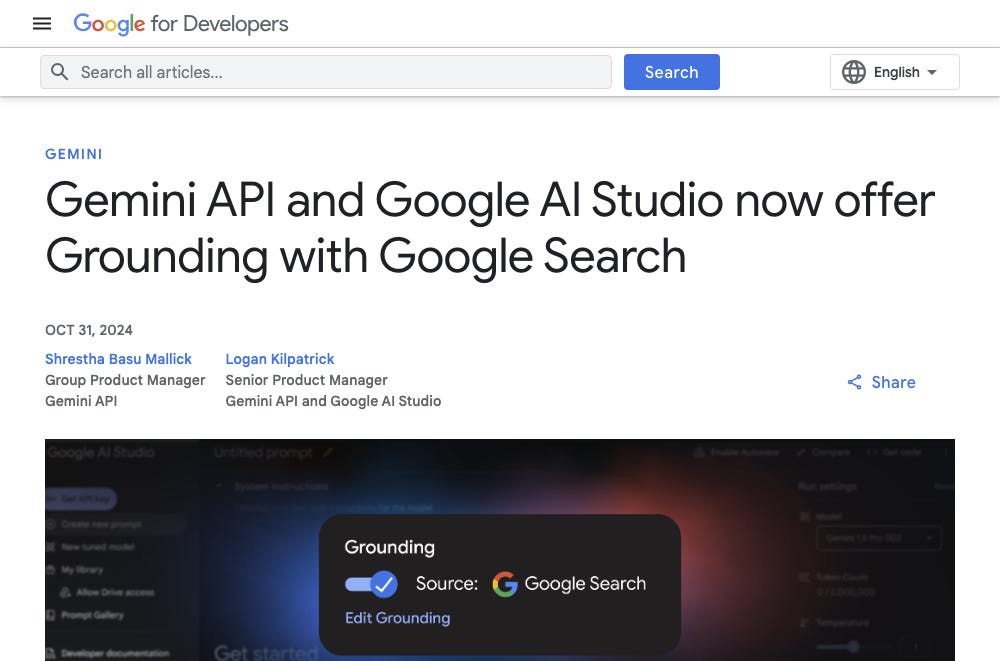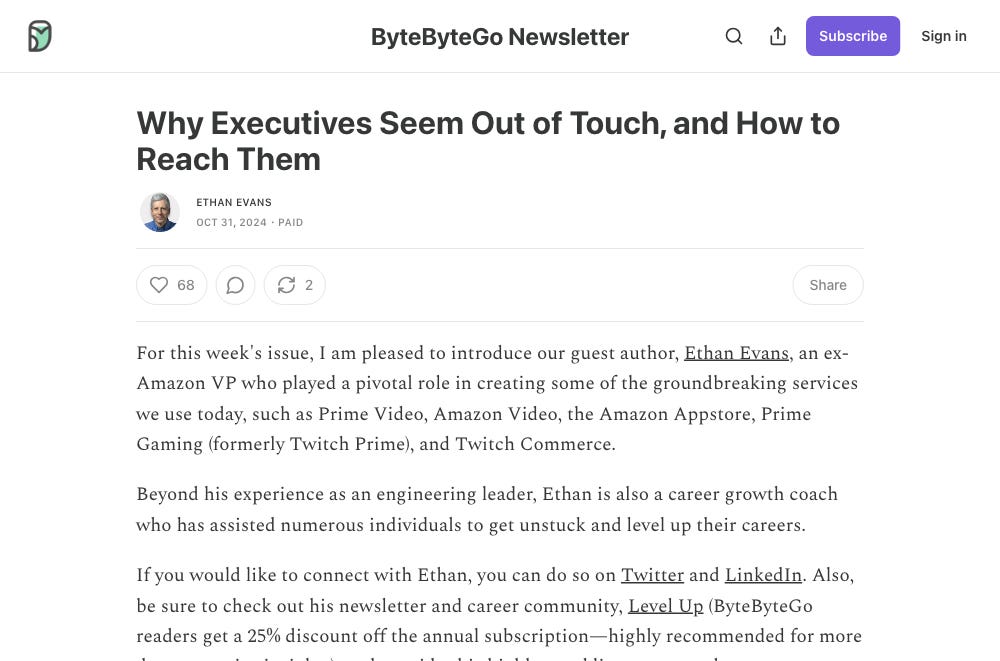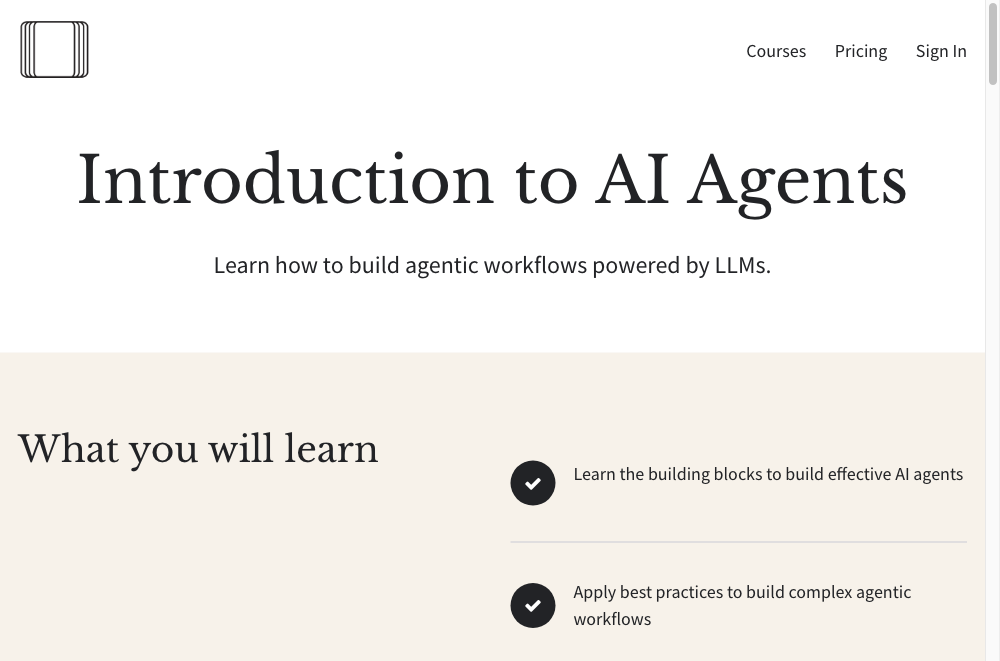Digitizing Smell, Automatic Prompt Optimization, Targeted AI Regulation, an Intro to AI Agents, and More
Society's Backend Reading List 11-04-2024
Here's a comprehensive AI reading list from this past week. Thanks to all the incredible authors for creating these helpful articles and learning resources.
I put one of these together each week. If reading about AI updates and topics is something you enjoy, make sure to subscribe.
Society's Backend is reader supported. You can support my work (these reading lists and standalone articles) for 80% off for the first year (just $1/mo). You'll also get the extended reading list each week.
A huge thanks to all supporters.
What Happened Last Week
Here are some resources to learn more about what happened in AI last week and why those happenings are important:
- : A roundup of happenings in the realm of AI agents.
- : A roundup of new models and machine learning techniques that are making an impact.
AI Roundup by
: Simplifying AI happenings and news about the companies involved.AI Tidbits by
: AI developments split into categories (LLMs, multimodal models, agents, vision, audio, and more).The Batch: A weekly newsletter by Andrew Ng about the most important AI developments and what they mean for everyone.
What Else You Should Know
Supervised Machine Learning for Science is published
Christoph Molnar and Timo have published a new book titled "Supervised Machine Learning for Science," which explores how machine learning can be effectively used in scientific research. The book covers important topics like interpretability, causality, and uncertainty, aiming to enhance the understanding and application of ML in science.
Papers Podcast
ML papers are difficult to keep up with. Here’s this week’s NotebookLM-generated podcast going over important papers you should know:
Last Week’s Reading List
Reading List
Introducing SimpleQA
OpenAI has created SimpleQA, a new benchmark to evaluate the factual accuracy of language models. It focuses on short, clear questions with definitive answers to reduce errors and improve trustworthiness. SimpleQA aims to drive research towards making AI models more reliable and accurate.
Automatic Prompt Optimization
By Cameron R. Wolfe, Ph.D.
Automatic prompt optimization uses algorithms to improve prompts without human intervention. This process involves generating and evaluating various prompt variants to find the most effective one. Recent research shows that large language models (LLMs) can significantly enhance prompt quality through these automated techniques.
Understanding Multimodal LLMs
By Sebastian Raschka, PhD
The article explains multimodal large language models (LLMs), which can process different types of data like text, images, and audio. It highlights two main approaches for building these models: the Unified Embedding Decoder Architecture and the Cross-Modality Attention Architecture. The author also reviews recent multimodal models, including Meta AI's Llama 3.2, showcasing their capabilities in tasks like image captioning.
The case for targeted regulation
Governments need to create targeted regulations for AI to manage risks while allowing innovation. Anthropic suggests using Responsible Scaling Policies (RSPs) to identify and mitigate these risks effectively. Collaboration among policymakers, the AI industry, and other stakeholders is crucial to establish a solid regulatory framework soon.
In the Arena: How LMSys changed LLM Benchmarking Forever
By Latent Space
LMSys has transformed how language models are benchmarked by using a voting system that reflects user preferences instead of traditional metrics. The Arena ELO scores, which have gained over a million votes, provide a more practical view of model performance compared to academic standards. This approach captures diverse user experiences and is expanding to include multimodal evaluations and specialized tasks.
Gemini API and Google AI Studio now offer Grounding with Google Search
Google AI Studio and the Gemini API now include a feature called Grounding with Google Search, which helps developers get more accurate and up-to-date responses. This feature provides supporting links and search suggestions, making AI applications more trustworthy and informative. Developers can enable this feature to enhance their applications and deliver richer content to users.
Why Executives Seem Out of Touch, and How to Reach Them
By Ethan Evans
Ethan Evans, a former Amazon VP, discusses why employees often feel disconnected from their leaders in large organizations. As companies grow, decisions made by executives can seem surprising or out of touch. He offers insights and resources for career growth and understanding executive perspectives.
Introduction to AI Agents
This course teaches how to build effective AI agents and complex workflows using LLMs. Students will learn key concepts, including multi-agent systems and the no-code tool Flowise AI. By completing the course, participants will earn a certificate and gain skills applicable to various domains.
Digitizing smell to give everyone a chance at a better life.
Osmo is creating technology to generate smells like we create images and sounds. The team, with expertise in various fields, was previously at Google Research and is now focused on building a startup dedicated to digitizing smell. They have attracted notable investors, including the Bill & Melinda Gates Foundation and other prominent individuals.
The 10 Trillion Parameter AI Model With 300 IQ
A new AI model has been developed with 10 trillion parameters and an IQ of 300. This powerful model aims to improve various tasks in artificial intelligence. Its advanced capabilities could change how we interact with technology.
Relaxed Recursive Transformers: Effective Parameter Sharing with Layer-wise LoRA
Keep reading with a 7-day free trial
Subscribe to Society's Backend to keep reading this post and get 7 days of free access to the full post archives.





